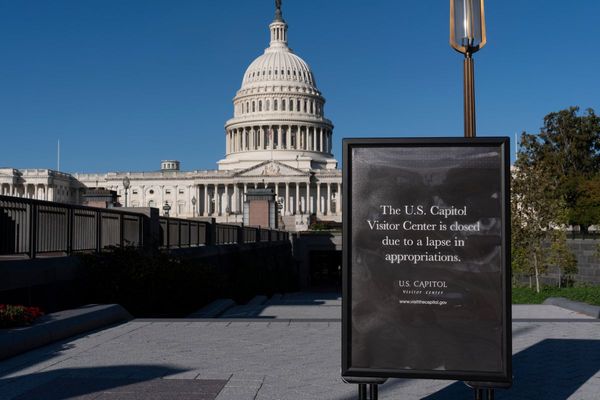U-turns tend to be humiliating events. When performing them in a car, there’s the shame of your GPS incessantly ordering you to turn around amid the angry honking of drivers’ horns; in government, the shaming is gleefully carried out by the media and the opposition.
Political U-turns are perceived to be so ignominious, in fact, that lawmakers seem to feel the need constantly to insist they are not guilty of them. “You turn if you want to. The lady’s not for turning,” Margaret Thatcher told the Conservative party conference in 1980, seeking to show her strength and mark a conspicuous change from the previous Tory prime minister, Edward Heath, whose reversal on economic policy in the early 1970s had provided the original impetus for the metaphor.
We have certainly seen our fair share of government U-turns during this pandemic. In Britain, the most notable recent one was the decision to extend the provision of free meals to underprivileged children to cover the school summer holidays, after pressure from a campaign led by footballer Marcus Rashford. According to Hansard, the term was used in Parliament more often in June 2020 than in any other month ever, with the two dreaded syllables uttered a total of 69 times.
Yet the U-turn doesn’t seem to be something that those outside political circles deem particularly worthy of denunciation. Rashford himself said he was “grateful that the prime minister did change his decision”, and told the BBC he had thanked Boris Johnson personally.
It’s an example worth following: we should stop chastising politicians for changing their minds, and start cheering them for doing so instead. Rashford had pushed for something he believed in, and the government had listened. One needn’t imagine that Johnson’s about-face was motivated by anything other than public relations, but if it also leads to good politics, shouldn’t we be happy about that?
Contrary to its negative image, a U-turn is a sign of a healthy and functional democracy; a demonstration that a government is willing to listen and that the media, opposition parties and general public have the power to hold their leaders to account. As Tim Bale, professor of politics at Queen Mary University of London, put it to me: “Democracy isn’t just about an election every five years. It’s a continual process of back and forth: listening, calibrating and adjusting.”
In US politics, the U-turn is referred to as the “flip-flop”, but jeered just as often. An online store dedicated to “president flip-flops” offers punters the chance to wear contradictory statements from Donald Trump on each foot, so you can “go back on your word, one step at a time”. (We regret to tell you that all items are currently sold out.)
In the world of business, however, no such negative connotations exist — quite the opposite, in fact. Companies know that if their business model isn’t working, they must change course to keep shareholders happy. This is commonly referred to as a “pivot”, a term made famous by Silicon Valley, and tends to be welcomed by the market.
In our personal lives too, we tend to see those who are able to take criticism on board and adjust their behaviour accordingly as praiseworthy and broad-minded, while regarding those who are unwilling to listen to other opinions or advice as pigheaded or arrogant.
Political U-turns do carry potential hazards. Perform too many of them and you risk being seen as lacking in conviction and authority, even by your own party. That must be particularly abhorrent to the cabinet ministers who are sent out to defend the indefensible, only to be publicly humiliated hours later by a leader who says the policy was dreadful after all.
The main problem with U-turn shaming, though, is that the punishment is doled out at the wrong moment; we should be criticising our leaders before they change their policies, not afterwards. Yet the term continues to be used as a way of creating a juicy splash or headline, as it has since its concoction by William Rees-Mogg when editor of The Times.
Very often, this oversimplifies a complex narrative by creating a binary division between what the government had intended to do and the policy it would now be pursuing — a recent example being the alleged 180-degree turn on herd immunity. In so doing, it stokes tensions and divides us.
If we don’t start to destigmatise the U-turn, we are just encouraging our leaders to become more inflexible and dishonest, further breaking down trust in government. A new name for it might help. In Australian politics, the U-turn is known as the “backflip”. While that doesn’t feel quite right, given that one ultimately ends up in the same place facing the same direction, at least the overtones it carries are impressive, rather than embarrassing.
Whatever we call it, if we truly want better politics, with less tribalism and more robust debate, we need to learn to love the U-turn.
Jemima Kelly is a reporter on FT Alphaville. ; .
Follow on Twitter to find out about our latest stories first. Listen to our podcast, , where FT editors and special guests discuss life and art in the time of coronavirus. Subscribe on , , or wherever you listen.
Copyright The Financial Times Limited 2020
2020 The Financial Times Ltd. All rights reserved. Please do not copy and paste FT articles and redistribute by email or post to the web.







